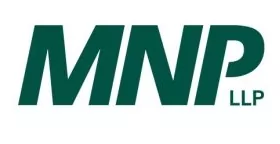International Financial Reporting Standards (IFRS) has gotten a lot of press over the last few years. It has a reputation of being only for public companies, expensive to apply and responsible for really lengthy financial statements. Private companies often don't even consider IFRS an option when preparing their financial statements. But do they consider any other recognized financial reporting framework? Accounting Standards for Private Enterprises (ASPE) is the private company alternative to IFRS. However, ASPE is not as widely talked about as IFRS. For those that have heard of it, they know it as the cheaper and simpler option of preparing financial statements in accordance with a recognized financial reporting framework in Canada. But even though some may have heard of ASPE and its benefits, there are still many private businesses in Canada that ignore both ASPE and IFRS altogether when preparing their financial statements.
Whether you are an investor in a private company or the owner of one, reliable financial statements are critical for business growth and sustained success. The best way to ensure your financial statements are reliable is by applying an appropriate financial reporting framework. When financial statement preparers ignore the influence of a recognized financial reporting framework such as IFRS or ASPE, they are essentially recording economic transactions the way they personally feel they should, which automatically reduces the reliability of any key number on the financial statements.
Presenting financial statements that don't give the person reading them that 'warm and fuzzy feeling' can be the most expensive business decision an owner can make. Investors and lenders want to feel confident that they are making the right business decisions and reliable financial information is often one of the key factors in that decision-making process. When a company is called on to prepare reliable financial statements, it may find itself going back in time to try to gather financial information in order to restate its financial statements to satisfy investors or lenders. This process can be very costly and in the end, the information may not even be obtainable.
There are additional risks associated with using financial statements that are not prepared in accordance with a recognized framework such as IFRS or ASPE. For example, when a company is sold, the agreed sale price may be significantly adjusted or disputed after the fact when actual results reveal a financial situation that is inconsistent with the financial reporting on which the original price was based.
Private companies that are unwilling to invest the time and money in learning to apply ASPE or IFRS risk being sold or bought at prices that are higher or lower than fair value, having a harder time finding investors or even paying higher interest rates as lenders may realize the inherent riskiness in relying on financial statements that are not based on any recognized framework. With the tough economic conditions that exist today, no company can afford not to use IFRS or ASPE.
To read more about this topic, you can read an article authored by Jo-Ann Lempert in Corporate Risk Canada magazine (October 2013 issue): Your private books - Globally recognized accounting standards for public companies such as IFRS are having an impact on private companies, too. What are the exposures for private companies?
The content of this article is intended to provide a general guide to the subject matter. Specialist advice should be sought about your specific circumstances.


